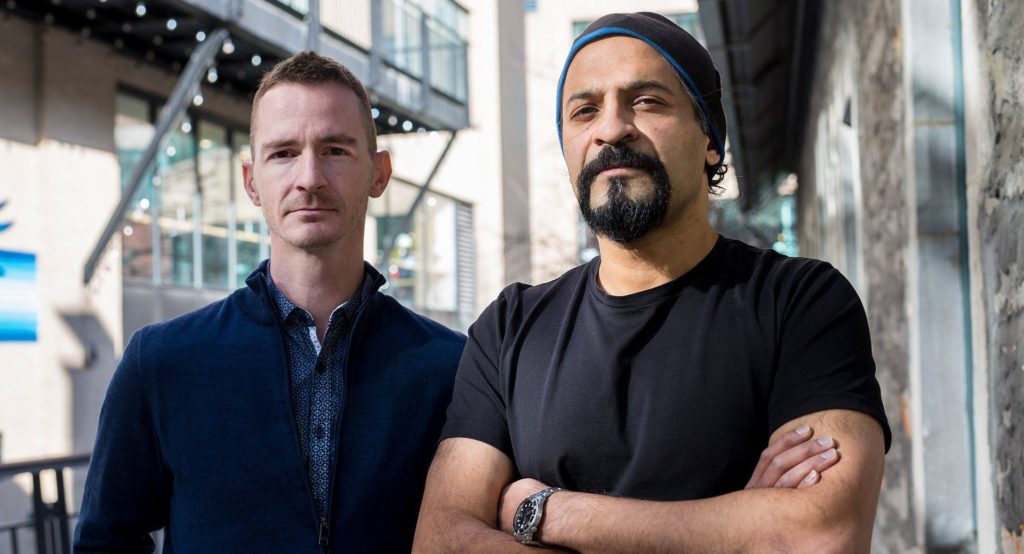Insights from Former Extremists
These videos provide an introduction to the project.
Articles
Perspectives on Terrorism
by Maxime Bérubé, Ryan Scrivens, Vivek Venkatesh, and Tiana Gaudette
In recent years, research on pathways in and out of violent extremism has grown at a staggering rate. Yet much of what is known about these oftentimes “mysterious” processes does not necessarily shed light on the specific aspects of right-wing extremism, and especially not from a Canadian perspective. In an effort to bridge this gap, we use a life-course criminology approach to draw from the voices of former extremists to gain insights into their respective trajectories in and out of violent extremism. A total of 10 life course interviews were conducted with former Canadian members of violent right-wing extremist groups. Analyses of these data suggest that even if there is no single trajectory in and out of violent extremism, there are still converging patterns such as the attraction for common pull factors and a profound dedication to the right-wing cause. Our analyses also demonstrate that the emotional toll of leaving the movement is often characterized by exhaustion, isolation and regrets.
Terrorism and Political Violence
by Tiana Gaudette, Ryan Scrivens, and Vivek Venkatesh
While a growing body of evidence suggests that the Internet is a key facilitator of violent extremism, research in this area has rarely incorporated former extremists’ experiences with the Internet when they were involved in violent extremism. To address this gap, in-depth interviews were conducted with ten Canadian former right-wing extremists who were involved in violent racist skinhead groups, with interview questions provided by thirty Canadian law enforcement officials and ten community activists. Participants were asked about their use of the Internet and the connection between their on- and offline worlds during their involvement in the violent right-wing extremist movement. Overall, our study findings highlight the interplay between the Internet and violent extremism as well as the interactions between the on- and offline worlds of violent extremists. We conclude with a discussion of study limitations and avenues for future research.
Studies in Conflict & Terrorism
By Ryan Scrivens, Vivek Venkatesh, Maxime Bérubé, Tiana Gaudette
While it has become increasingly common for researchers, practitioners and policy-makers to draw from the insights of former extremists to combat violent extremism, overlooked in this evolving space has been an in-depth look at how formers perceive such efforts. To address this gap, interviews were conducted with 10 Canadian former right-wing extremists based on a series of questions provided by 30 Canadian law enforcement officials and 10 community activists. Overall, formers suggest that combating violent extremism requires a multidimensional response, largely consisting of support from parents and families, teachers and educators, law enforcement officials, and other credible formers.
Media coverage
Below are examples of the media coverage received by this project.
Photo Credit: Concordia University
Concordia University, February 12
What former skinheads say about why they joined hate groups and why they left by Jonathan Montpetit
CBC, February 13
L’empathie est « la clé » pour éradiquer l’extrémisme, plaident des chercheurs by Henri Ouellette Vézina (in French)
Journal Metro, February 14
Why do Canadians join hate groups? Concordia researchers may have part of the answer by Adam Kovac
CTV, February 16
The number of Canadians joining hate groups is rising. Why is this happening? By Elias Makos
CJAD 800, February 18
Vox Pol blog, July 22 and July 29
The Global Network on Extremism and Technology, August 7
Interviews with former extremists
Here are 3 interviews with former extremists. They were recorded in collaboration with the Hate to Hope massive open online course (for more information see here). Brad Galloway, Maxime Fiset, and Mubin Shaikh talk about their personal experiences.
Équipe
Ryan Scrivens, Vivek Venkatesh, Maxime Bérubé, Tiana Gaudette, Ashley Montgomery, Méi-Ra St-Laurent, Ramya Panchacharam





 Français
Français